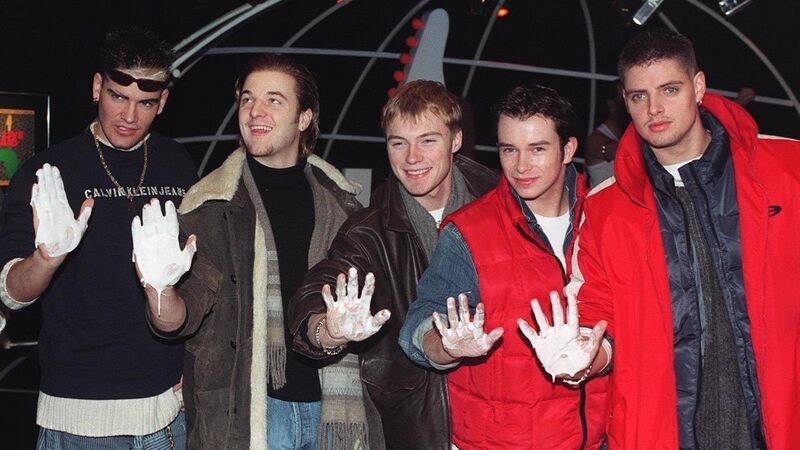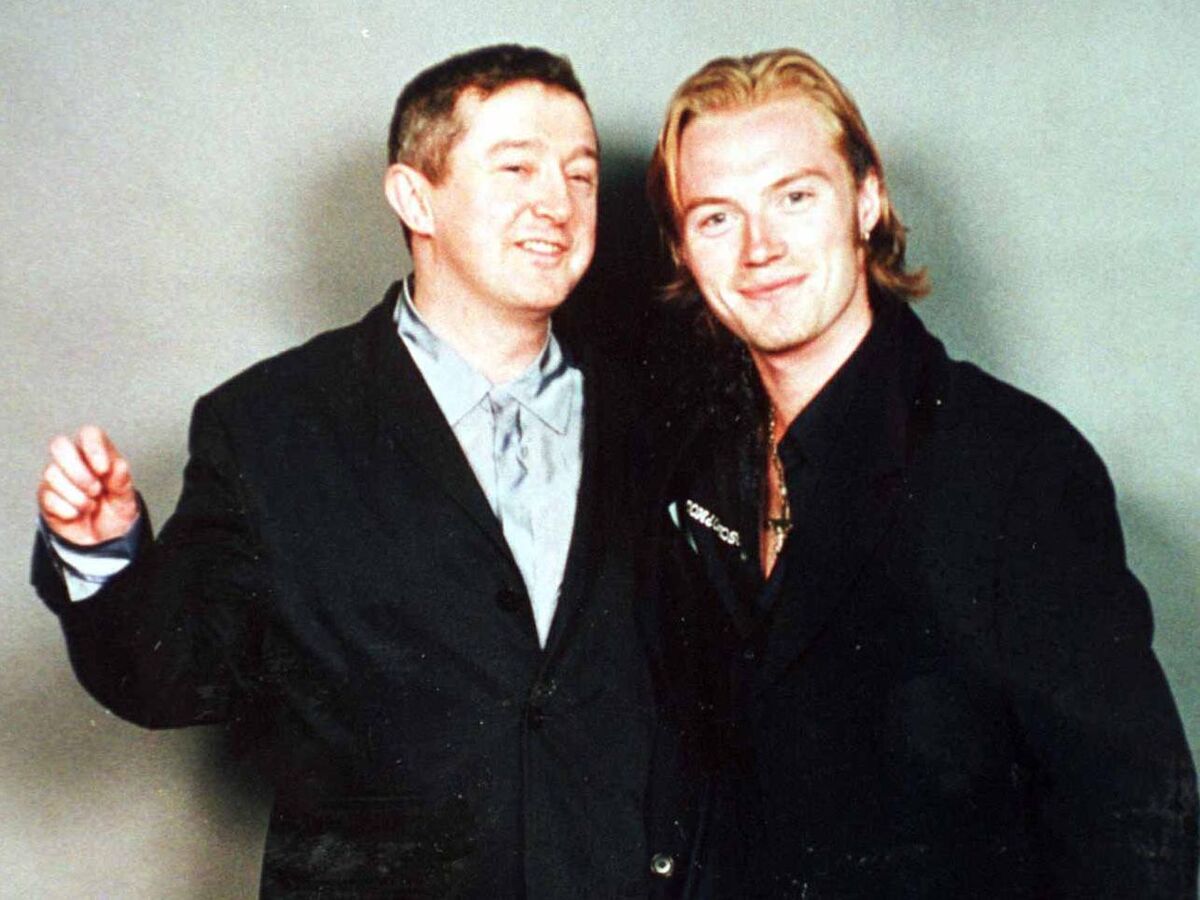Tom Dunne: Boyzone documentary is fab, even if it feels a bit unfair on Louis Walsh

Boyzone at a PR event getting their hands moulded back in their heyday.
I remember the first time I saw Boyzone. It was the coming home ceremony for Jackie’s Army, USA World Cup, 1994.
My band, Something Happens, had been offered a slot at the Phoenix Park welcome home gig. I’d said “yes” on behalf of the band because I wanted to meet the team.
Paul McGrath, Ray Houghton, Jackie Charlton himself: all gods. Ray, our guitar player was non-plussed. We had a gig later in Galway, but he agreed because he knew what it meant to me.
I later made him shake Ray Houghton’s hand. "The hand of the man who put the ball in the English net,” I told him. “Just shake it. In years to come your children will thank me.”
It was an awkward gig. The audience were very young. It was three years since any of our songs had topped the charts.
When we arrived, Dickie Rock was being politely applauded, whilst we, forced to play acoustically, didn’t fare much better.
Dickie and I stood side stage afterwards. I was a bit in awe of him too, a genuine legend of the showband era.
But as we chatted we became aware of the audience’s growing excitement. Something was unsettling them.
A backing track coughed into action and six lads in orange jump suits danced out onto the stage. The audience exploded. It was mass hysteria for a completely unknown band. Dickie eyed me cautiously. “We’re in trouble here, Tom,” he said quietly.
And weren’t we just. The orbits of the entire generation of bands that had brought you such hits as Feile ’90 and ’91 went into a steep decline at that point.
In the years to come Boyzone just seemed to go from strength to strength. The showband lads knew things. Their manager Louis Walsh had cut his teeth in that world.
Rumour had it, borne out in the new Sky Arts documentary, Boyzone No Matter What, that he had borrowed £10,000 to launch the group in what was for him a last roll of the dice. It’s always the simple ideas that work. The Irish Take That. Couldn’t fail.

I knew Louis well. He was always largely critical of my band and my contemporaries for having destroyed the covers band market. Once we and Hot House Flowers and The Four of Us started, having self-penned hits this became an expectation.
“But you guys only do one Irish tour a year,” he complained bitterly, “then you go into record or play abroad.”
Covers bands were available seven nights a week, all year round. We and our ilk had killed his livelihood. Boyzone felt like his revenge.
You couldn’t dislike Louis. He adored music. I’d sometimes meet him in HMV as we perused Beach Boy compilations or at RTÉ discos where he would name the B-side of every record played.
But you sensed he made a firm distinction between the music and the music business.
He is harshly portrayed in the Sky documentary. At times it looks like a bit of an ambush. Are there axes being ground? Old scores settled? Sometimes, it’s all in the edit.
It was his idea and his vision that guided Ronan, Keith, Stephen, Mikey and Shane to life changing success and wealth.
He played them, he played the industry, he played the tabloids, and in so doing engineered a level of success that is, as you will see in this documentary, jaw-dropping.
The effect, the grinding effect on each of its members, is told wonderfully in a documentary that I found very moving even before it got to the drama and tragedy surrounding Stephen Gately. And that, absolutely, broke my heart.
Being in a band at any level is one of those things I think about a lot. It so often does not end well and seems to routinely expose its members to an emotional roller coaster that it is savage and destructive.
It preys on insecurities and weakness and is utterly unforgiving of both. But it might make you rich.
At a band competition I was judging with Louis once someone railed at him for not doing enough for a young protégé at the time “kicking his heels” in LA. “I got him out of Darndale didn’t I?’ countered Louis.
Boyzone, No Matter What is very much the tale of the cost that must be paid to make such an escape. It is also one of the most insightful, emotional, music documentariess I have seen in years.


